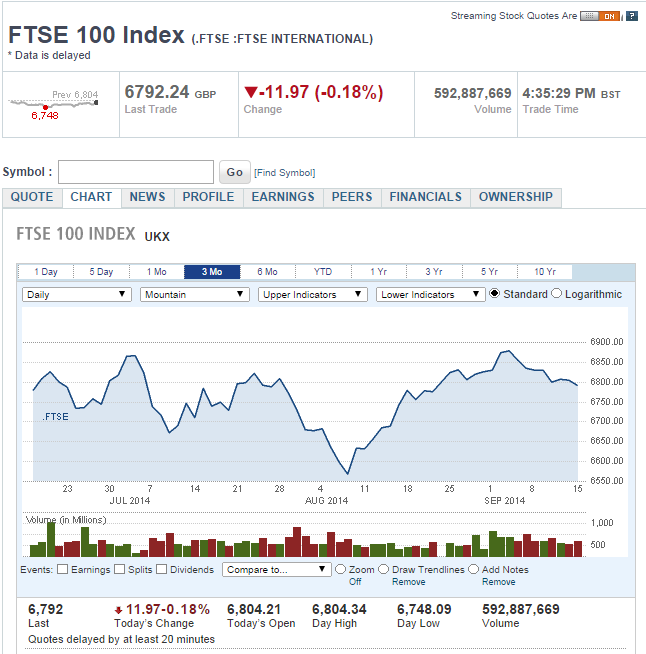There were several outstanding issues last three days:
1) Rejection of Scotland independence
2) Relief from FOMC meeting
3) ECB's targeted long-term refinancing operations (TLTROs, $106.9 billion)
4) Alibaba IPO
I apologize for the late update.
DJI boosted with Alibaba's successful IPO. It gave a positive view on the market on Friday. Yellen 's speech after FOMC meeting also gave a positive look on the market that it is unlikely to increase interest rate anytime soon. She stated that housing market is improving but it is still a concern for economic recovery for low income families.
The market still needs to consider that interest rate will be increased. The reason why Fed. didn't increase the rate, or even consider to increase this time, is they are worried about overreaction in the market. As market accepts that the rate will be increased, sooner than they think, the Fed. will take action.
Yellen's statement today came out along with decrease in continuing jobless claim and building permits. Since the main cause of financial crisis came from the housing market, recession in housing market rises concern on economic expansion. Housing market is still the important asset channel for low income families. Jobless claim continuously decreases, but it doesn't always mean that job market is getting better these days. Yellen stated today that
"There are still too many people who want jobs but cannot find them, too many who are working part time but would prefer full-time work, and too many who are not searching for a job but would be if the labor market were stronger." Her statement eased tensions and gave positive look on the market.
Alibaba had a successful debut in the market on Friday. It gave a positive view on the market even though there were some bad economic indicators and increase in geopolitical risks.
As Scotland's independence was rejected and ECB implemented $106.9 billion TLTRO program to enhance the functioning of the monetary policy by supporting bank lending to the economy, it seems like Europe is out from danger zone for now. TLTRO will provide higher liquidity on the market which will increase inflation rate and investment.
Even Scotland's independence was rejected, the U.K. promised to promise extra funding on Scotland. It can potentially harms the U.K. economy, which results as slight decrease in GDP/USD even retail sales increased in August.
Gold price keeps decreasing as global issues are solved and ECB implemented the TLTRO program.





























%2B-%2BAugust.PNG)
%2B-%2BAugust.PNG)

%2B-%2BAugust.PNG)






